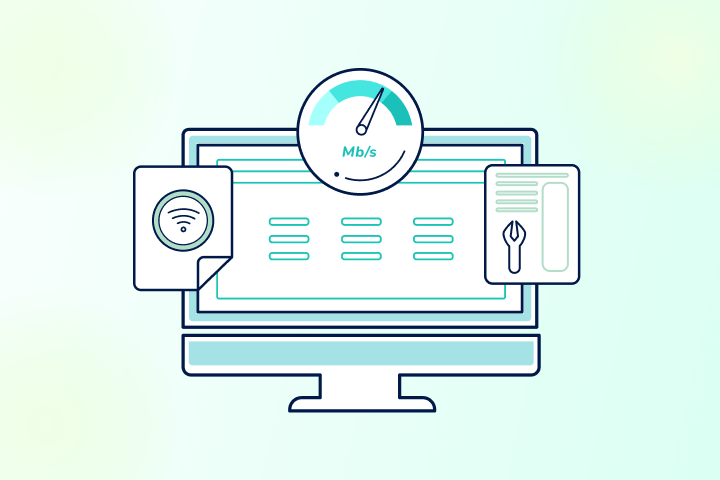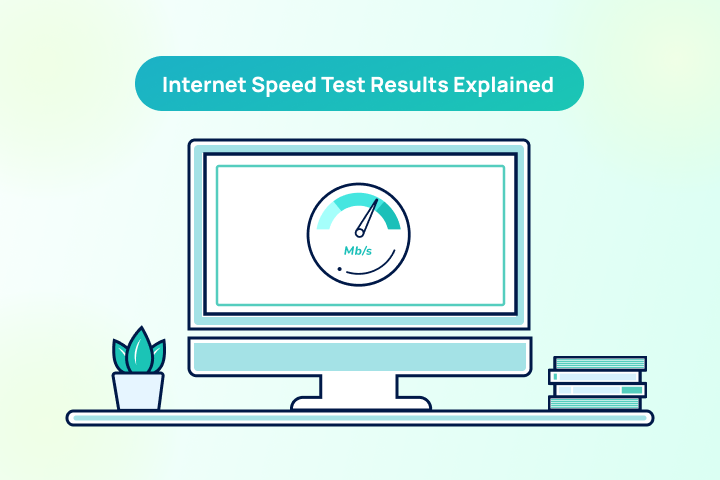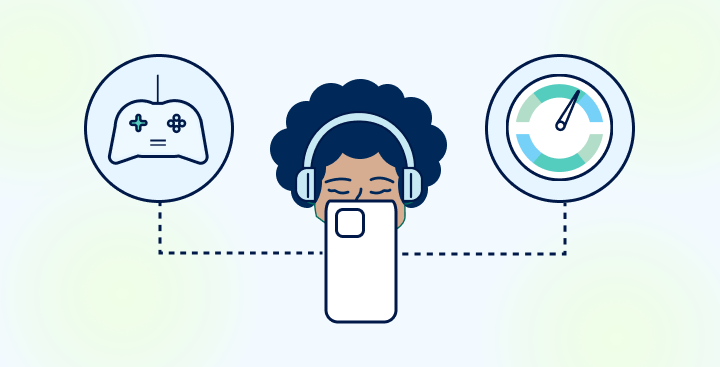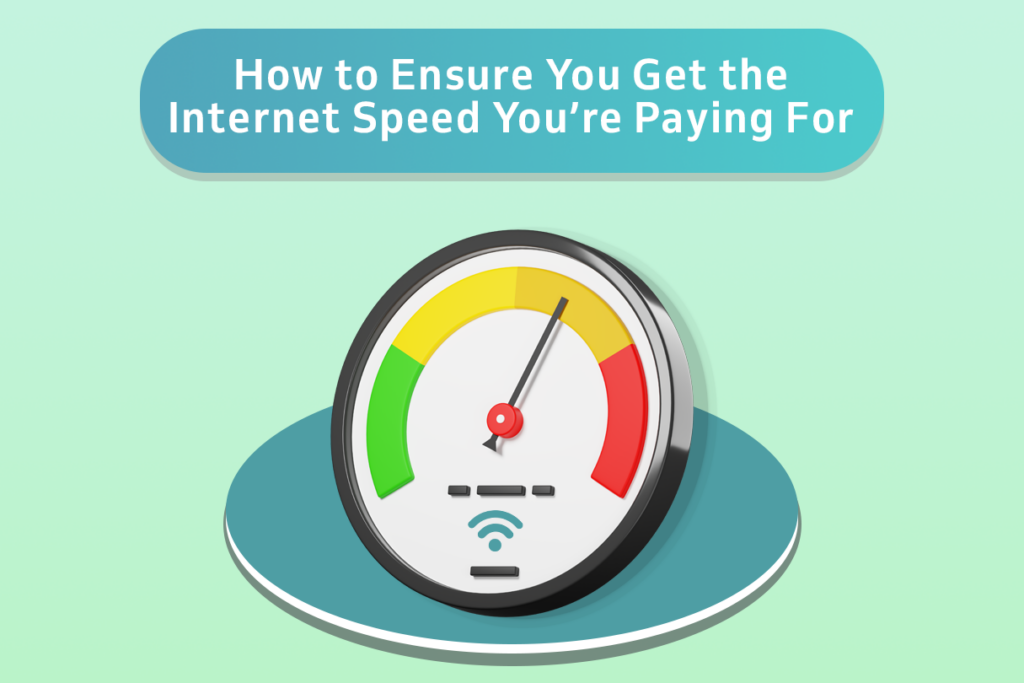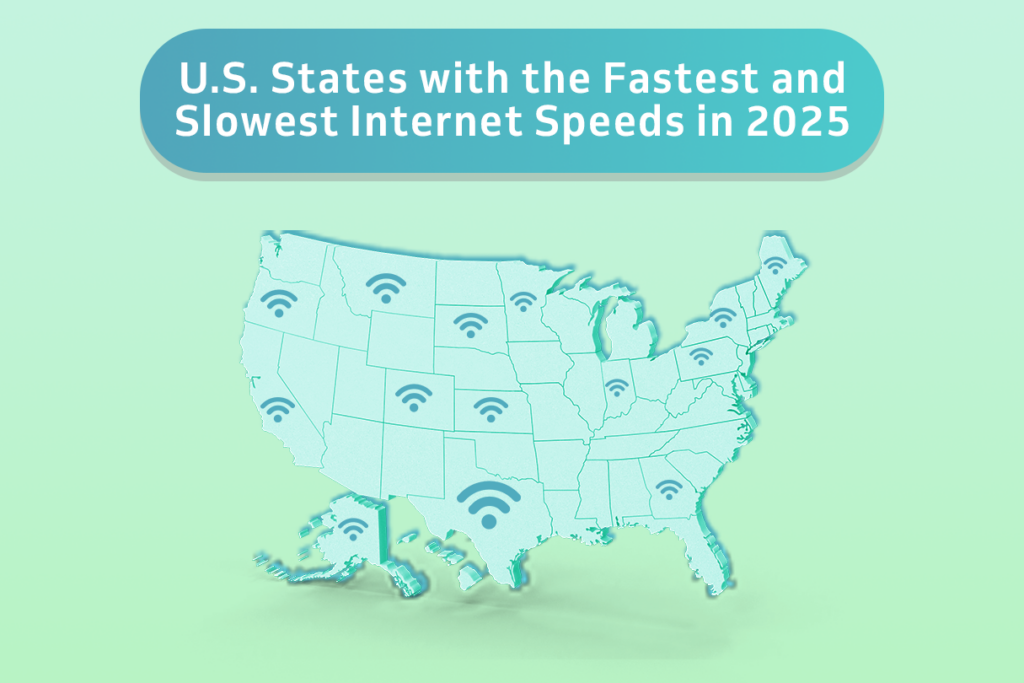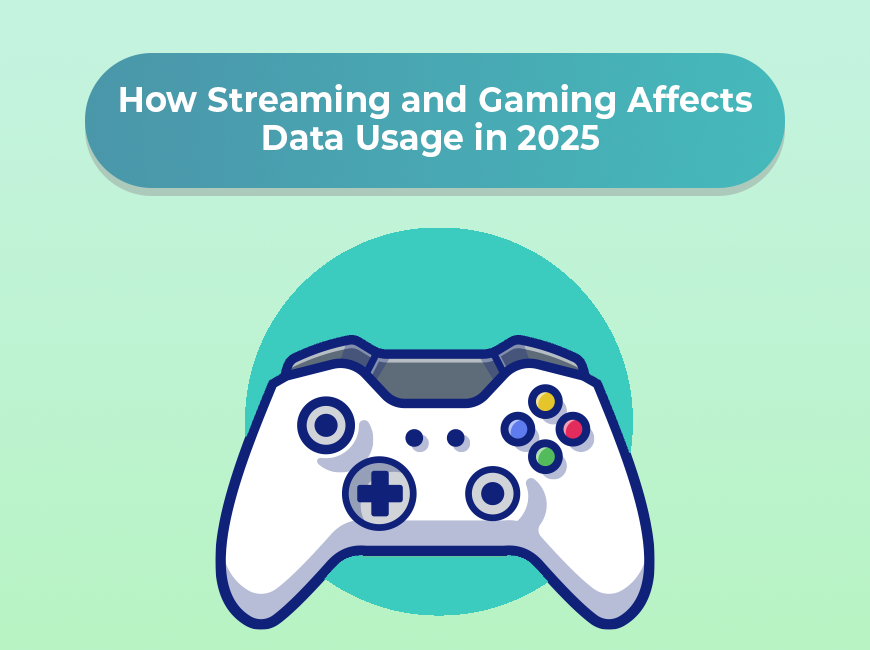What is a good internet speed? Should you pay for the top plan a provider has to offer, or can you get by with a cheaper, slower plan?
To answer these questions, first, run an internet speed test to see how your current connection is performing. Then, take a speed quiz to see if those speeds match your lifestyle needs. If they’re not, it may be time to upgrade your service.
Below we break down how to assess your internet and find the optimal speed for your home.
Assessing Your Internet Speeds
To figure out what internet speed you need, it’s important to understand how internet speed is measured. Internet speed — most commonly measured in megabits per second (Mbps) — is how fast data can travel between your devices and the internet.
According to the Federal Communications Commission (FCC), broadband internet is defined as an internet plan with at least 25 Mbps download and 3 Mbps upload. Download speed is the rate at which data passes from the internet to a device, and upload speed is the opposite.
Sometimes download and upload speeds are symmetrical (i.e. fiber internet plans), and sometimes they’re different (i.e DSL internet plans). Because most online activities involve downloading data, download speed is the speed that’s prioritized and advertised in internet plans.
Minimum Speed Requirements
How much internet speed you need depends on how members of your home use the internet. You should consider your home size and internet usage before settling on a plan.
The FCC provides broadband guidelines that outline the minimum speeds required for common internet activities like streaming or gaming online. Typically, these download speeds range anywhere from 1 Mbps – 25 Mbps.
Network Limits & Users
While 25 Mbps download is useable, it gets used up quickly when there is more than one person at home connecting devices. To figure out the bare minimum speeds you need, we recommend multiplying 25 Mbps by the number of users in your family.
The demand on your internet connection can add up very quickly. It is very important to take an inventory of your needs and devices when calculating the internet speed you need.
Things to Know When Shopping for Internet
Now that you have an idea of the minimum speeds you need in your home, it’s time to start shopping. Here are some factors to help set your expectations and consider before committing to an internet provider or plan.
Types of Internet
Each type of internet connection has its own nuances that will affect speed and performance. Availability of each really comes down to where you live, but usually, homes have at least two connections to choose from.
Fiber internet is the fastest and most stable type but is less available than cable internet and DSL. Satellite and fixed wireless internet are mostly convenient solutions, especially for those in rural areas, as they can go where wired connections can’t. Whichever one you choose, be sure to run a speed test regularly to check your network performance.
Advertised Speeds vs Actual Speeds
Depending on which plan you choose, you’ll be allotted a certain amount of bandwidth per month. Your bandwidth lets you know the maximum download speed available for your connection at any given time. However, the speed you actually experience on a day-to-day basis often varies.
Your actual speeds will almost always be lower than the advertised speeds by anywhere from 10-30%. If you experience speeds slower than this, we recommend reaching out to your internet provider to help troubleshoot.
Wired vs Wireless Connection
The advertised speed is based on a wired connection. The best way to achieve the advertised speed is by using an ethernet connection. Unlike a wireless connection, an ethernet link limits where you can be in your house if you want to access the internet. That’s why most users connect to the internet via a wireless connection using a WiFi router.
When picking a provider, make sure their service comes with WiFi capabilities. Also, know where your wired access points are in the house in case you ever need to connect directly to the source. These two options will provide very different speed results.
Picking the Right Internet Plan
Picking the right internet plan all comes down to how you use the internet and where you live. Once you test your internet speed and find out what your family needs, you can start your search for the best internet provider near you.
